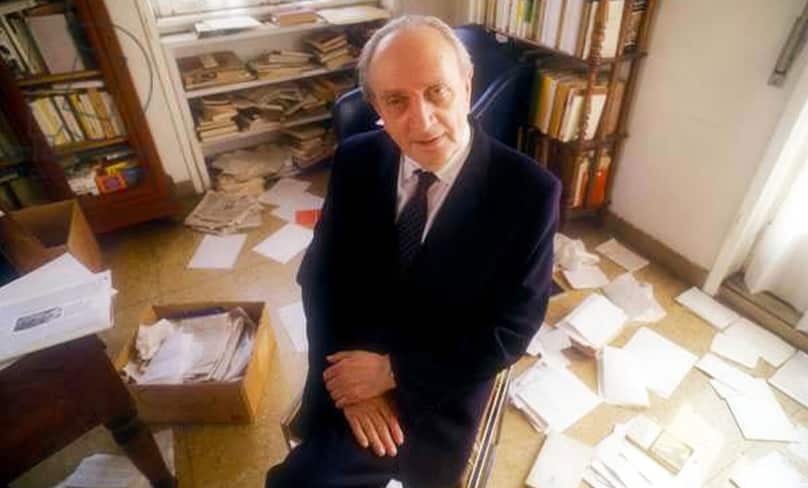
Among the most insidious and destructive aspects of Marxism and its recent manifestations cultural-Marxism and absolutist secularism is how the end always justifies the means and how any sense of the spiritual and the transcendent is lost.
Add the impact of what the Italian philosopher Augusto Del Noce condemns as “scientism and the technological society” and it should not surprise we now live in a soulless world ruled by what is utilitarian, pragmatic and self-seeking.
For those committed to Marxism and cultural-Marxism religion is condemned as the opium of the masses and any sense of the spiritual and mystical must be abolished if capitalism is to be overthrown and the workers’ paradise achieved.
Instead of being free, workers are enslaved and as argued by The Communist Manifesto “they have nothing to lose but their chains.” People are economic animals where their energy and resources must be directed at overthrowing capitalism and gaining material freedom and independence.
There is no afterlife, as the only reality that exists is what is found on this earth. How people define themselves, find purpose in life and interact is determined by the struggle to gain liberation from the capitalist superstructure, what Louis Althusser calls the ideological state apparatus, that permeates society and controls their lives.
The City of Man replaces the City of God and it should not surprise, beginning with the French Revolution, that one of the first actions taken by revolutionaries is to radically secularise society by banning religion, destroying the churches and imprisoning and killing the clergy.
As detailed by Del Noce in “Towards a New Totalitarianism” closely associated with the deadening influence of cultural-Marxism and absolutist secularism is scientism.

The belief that science is “the only valid form of knowledge” and that empiricism based on rationality and reason is the only way to find fulfillment, wisdom and truth.
While not denying the benefits of science, De Noce warns against what is described as a totalitarian conception of science. A restricted definition where “every other knowledge— metaphysical or religious—expresses only subjective reactions.”
What cannot be proven empirically is condemned as superstition and witchcraft. Whether unravelling the mysteries of the universe, splitting the atom, putting a man on the moon or creating life in vitro, scientism assumes mankind is the master of his own fate.
The way nations responded to the Covid-19 pandemic by denying essential freedoms, forcing citizens to be vaccinated against their will, bankrupting businesses and shutting borders based on “the science” proves how dangerous and counterproductive scientism has become.
The growing incidence across so-called civilised countries of euthanasia, abortion on demand and radical gender conversion therapy involving puberty blockers and life changing surgery also illustrates what happens when scientism takes control.
It’s no accident, along with the denial of any sense of spirituality and transcendence, countries like Australia are suffering record rates of anxiety, depression and self-harm as well as the increasing incidence of substance abuse and societal breakdown.
In opposition to the prevailing nihilistic view of life, the American academic George Weigel argues to be human is to thirst for a more sustaining sense of the world.

Existential questions about the meaning of life, what constitutes fulfilment and how best to lead a moral and virtuous life cannot be answered by Das Capital, the Communist Manifesto or postmodernist theory.
Weigel in The Cube and Cathedral writes “the deepest currents of history are spiritual and cultural, rather than political and economic.”
Instead of economic determinism and nihilism, Weigel argues history is driven by culture. More important than physical needs and desires, is the search for what TS Eliot terms, “The Peace which passes understanding.”
Weigel describes this view of culture as a situation directed by “what men and women honour, cherish, and worship; by what societies deem to be true, god and noble; by what expressions they give to those convictions in language, literature, and the arts; by what individuals and societies are willing to stake their lives on.”
Similar to Weigel, Pope John Paul II in Fides Et Ratio makes the point, to be human, is to ask fundamental questions such as: “Where have I come from and where am I going? Why is there evil? What is there after life?”.
Whether Plato and Aristotle, Greek tragedies by Euripides or Sophocles, the sacred writings of Israel, the Veda and the Avesta, the writings of Confucius or the preaching of Tirthankara and the Buddha, John Pual II also suggests this search has occurred throughout history and across various cultures.
The danger is we now live in a world lost in a sea of agnosticism, relativism and widespread scepticism. As argued by Pope John Paul II, the challenge is to reaffirm “the path to true wisdom” in order for seekers to “find rest from their labours and joy for their spirit.”
